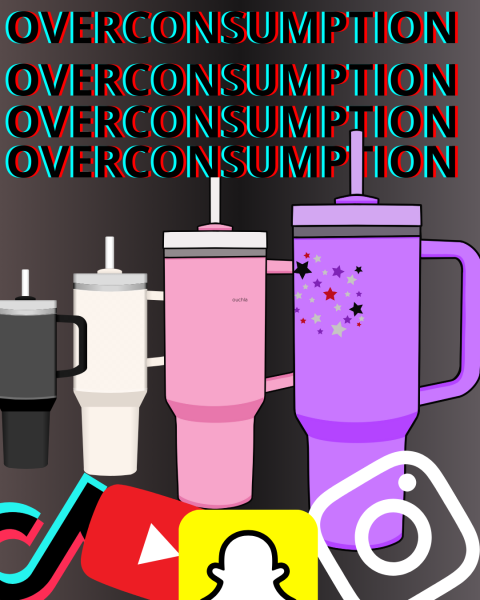Blaisdell: U.S. Constitution needs amending to help disenfranchised
The United States Constitution, written in September of 1787, was created with freedom and equality in mind. However, the original document had to be ratified with over 20 different amendments to keep up with changing morality and definitions of what freedom or equality even are. While the document itself never discriminates between different people, it also still needs to expand to help disenfranchised minorities.
Recent protests have highlighted a glaring flaw in the country’s system: corporations are allowed to run wild and discriminate where the government itself won’t. The government allows this to happen because of corporate lobbyists and consolidation of power. Systemic racism still looms large over the nation as a whole.
The Constitution has granted minorities more freedom such as in the 13th Amendment, which states, “neither slavery nor involuntary servitude… shall exist within the United States.” This gave the black population, among others, the ability to interact with the government as more than property.
The problem with the Constitution is more about what it does not protect against rather than the freedoms it already grants U.S. citizens. There are no constitutional amendments that even mention corporations. This lack of address is why marginalized people still feel they are not protected under the Constitution. Government corruption is a well-known and well-documented topic among political analysts.
According to calculations by the Center of Responsive Politics, companies like Amazon and Facebook spend over $9 million a year in lobbying alone. This sum of money shows that large companies have a stake in the law-making process and are willing to change it without going through proper channels.
The only thing companies desire is money, and they are ready and willing to do whatever it takes to make more this year than they had in the past. The accumulation of wealth is a soulless practice, and the lack of corporate regulation, especially in regard to their interactions with the government, leads to people of color and those in poverty to remain where they are in society with little hope for change.
In their pursuit of monetary gain, corporations seek to keep a status quo; a content society would hurt their profit margins because they wouldn’t need harmful corporations. Thusly, corporations try their hardest to preserve unfavorable conditions for people of color and those in poverty in order to stay in power. This creates an environment where people have to toil in futility just to survive while the rich, predominantly white upper class profits. This can be blamed in no small part on the lack of corporate regulation in the Constitution, lacking in explicitly racist, sexist, or classist language though it is.

Zackery Blaisdell (he/him)
Staff/Reporter, The Pony Express.
“Quote.” — Author
Zackery Blaisdell was born in Carmel, New York and moved to Olive...








Jeania Ehlinger • Nov 13, 2020 at 9:07 PM
Very well written article. A lot of thought and feelings went into his work. Great job.